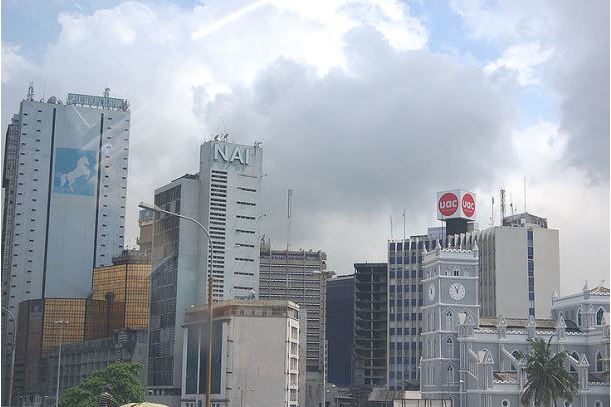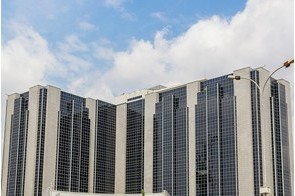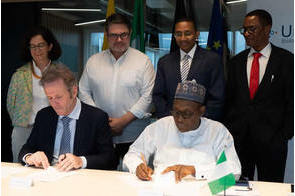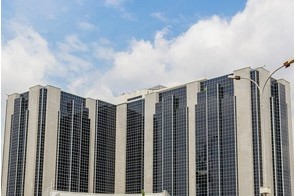Latest News
Nigeria’s output growth remains negative in Q1 2017 on high inflation

News Highlight
Inflation averaged 17.92 percent in Q1, 2017, soaking in the expansion in nominal GDP.
The National Bureau of Statistics (NBS) reported today that Nigeria’s economy contracted by 0.52 percent in the first quarter of 2017, inflation adjusted. This means the Nigerian GDP has shrunk in the last five quarters.
Nigeria entered a recession after the GDP contracted by 0.67 percent in Q1 and 2.06 percent in Q2, 2016. The recession deepened in Q3, as output contracted by 2.24 percent.
The economy seemed to be clawing back in Q4, when the GDP grew by -1.73 percent. Analysts believe that the recession will end sometime in 2017. The IMF projects that the Nigerian output will grow by 0.8 percent in 2017.
The positive projection for the year has been anchored on the recovery in the price of crude oil and the progress that has been made with ending the sabotage of oil installations in the Niger Delta by the militants. Nigeria lost as much as one million barrels per day to the militant attacks for months in 2016. Some of the infrastructures for oil production and export, including the Trans-Forcados Pipeline, have yet to come back on stream.
In the 2017 budget, the federal government puts 2.2 million barrels per day as crude oil production benchmark. The price of oil has also stabilized above $45 a barrel since October 2016.
The continuation of the recession cast doubts on the fiscal strategy of the government, which had expanded the 2016 budget by 33 percent, in the hope that ramping up investment in infrastructure will quickly help end the recession. It also puts into question that Nigeria has returned to producing 2 million barrels of oil per day. While the government insists on this threshold, OPEC data shows Nigeria is producing 1.5 million bpd.
However, the negative real GDP growth was induced by high inflation. According to the statistics by the NBS, aggregate GDP stood at N26.03 trillion in nominal terms in Q1, 2017, compared to N22. 23 trillion in Q1, 2016, resulting in a Nominal GDP growth of 17.06%. Inflation averaged 17.92 percent in Q1, 2017, soaking in the expansion in nominal GDP.
This raises question on the role of the Central Bank of Nigeria’s monetary policy, which has kept the anchor interest rate at 14 percent in 2017. Analysts believe CBN’s interest rate is inflationary. However, the CBN has maintained high interest rates in a bid to lure foreign investors to Nigeria and boost dollar liquidity to ease the pressure on the naira.
The latest GDP data may, therefore, reopen the need for more coordination amongst the monetary and fiscal authorities, as they seem to take divergent views of some key economic policies.
Related News
Latest Blogs
- Why electricity privatization failed (2)
- How net metering can boost embedded power generation
- Adaora Umeoji and gender in Nigerian banking leadership
- Is protest an endangered human right of Nigerians?
- Issues in using price control in Nigeria
Most Popular News
- IFC, partners back Indorama in Nigeria with $1.25 billion for fertiliser export
- Ali Pate to deliver keynote speech at NDFF 2024 Conference
- Univercells signs MoU with FG on biopharmaceutical development in Nigeria
- CBN increases capital requirements of banks, gives 24 months for compliance
- CBN settles backlog of foreign exchange obligations
- Nasdaq Dubai welcomes $600m sukuk listing by Islamic Development Bank






